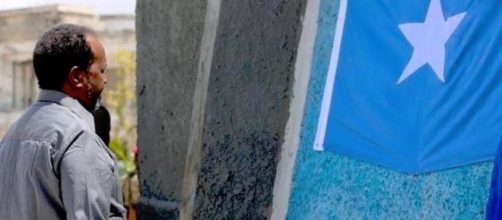Mogadishu, Somalia - The Somali parliament has passed a controversial Media Bill onTuesday, 29thDecember 2015,which aims to regulate Media in Somalia for the first time in twenty-five years since 1991 civil war.
The Media bill is described by National Union of Somali Journalist (NUSOJ) as damaging to freedom and "is unconstitutional as it fails to ensure that media is free from government, commercial or political control and interference. These provisions must not be allowed to be put into practice. Already endangered Media freedom in Somalia will be seriously damaged if these provisions are not reviewed.
Their review must meet progressive global practices to ensure the best possible protection for the right to freedom of expression," said Omar Faruk Osman, NUSOJ Secretary General.
The government introduced this bill so that they can hold Journalist and media houses accountable under the law. However within the 42 Article Bill, many articles are worded vaguely and carry out huge penalties for those who break the new law. Such as Article 18 which states any Journalist or Media Owners that are found guilty would be fined between $500 up to $10,000 USD. This was original $500 up to $1,500 on the final drafted submitted to the council of Minsters back in August 2014, the amount initially reflected an affordable amount based on Somalia's GDP of $600 USD.
The Somali Government does acknowledge that a written warning would be first issued to the Journalist or Media Owners.
So, what can journalist and media owners be imprisoned or fined for? Article 12, states that Somalia Media should avoid broadcasting and sharing materials that jeopardize the Islamic religion, Somali tradition, the unity of Somali people and sovereignty the Somali republic. Here is what they should really avoid if they don't want a huge fine or imprisonment: 1) Broadcasting or dissemination of false and unfounded information or data2) Broadcasting or dissemination of information that endangers the stability of the nation.3) Broadcasting or dissemination of publications, articles contrary to the religious confession and the Islamic doctrine.4) Dissemination and publication of pornographic pictures whether actual or artificial unless it is intended for research and experimental knowledge.5) The newspapers should avoid displaying tortured human body, carnal violence and other pictures that can spread shock within the community.6) Broadcasting or dissemination of information on national secrets.
Media law also requires the revealing of confidential sources in Article 15, "We must do everything in our power to protect confidential sources and courts must not be allowed to force journalists to reveal confidential sources. If this continues to happen, it will be clear that authorities will rush to court to get a court order to force a journalist to reveal the confidential source," added Osman.
Somali media Owners and Unions on Sunday (September 14th) submitted formal complaints to President Hassan Sheikh Mohamud, about a controversial media law approved by the cabinet two weeks earlier, Radio Bar-Kulan reported. This bill was still not rectified by President Mohamud his current Prime Minister Omar Abdirashid Sharmarke.
There has been mixed reactions by journalist and media house owners in Somalia, some hoping that this Media bill will bring better journalistic practices and others fearing the worst.
Somalia remains one of the most dangerous countries for a journalist to operate, with 18 journalists killed last year and death toll is on the rise for 2015. The Somali Government is yet to fully publish the 42 article Media Bill to the public.
Found this article interesting, read this too:

